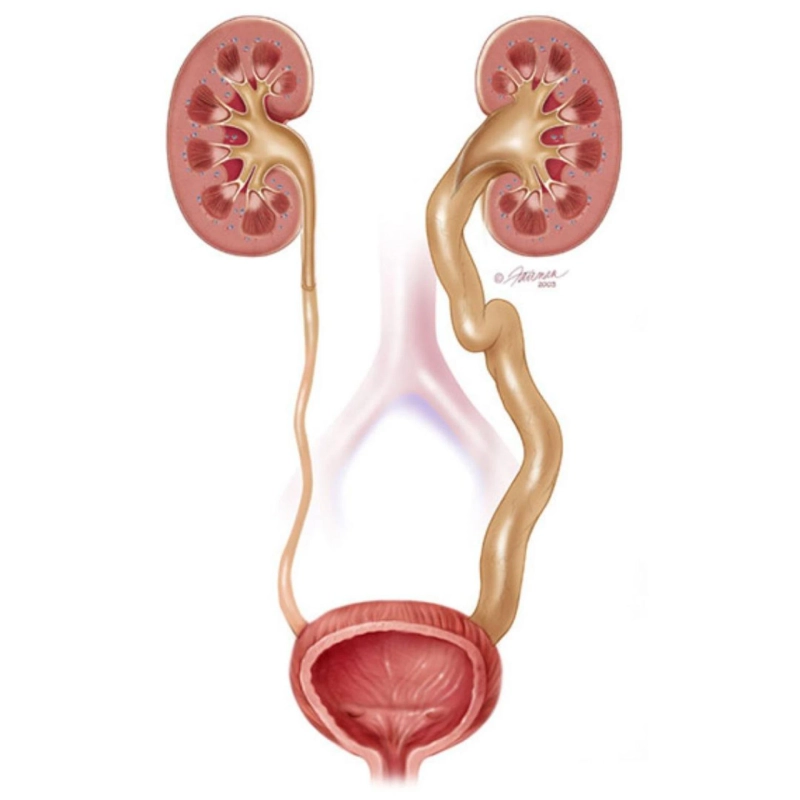What is Obstructive Megaureter?
Obstructive Megaureter, sometimes referred to as OMD or OM, is a urologic disorder in which the ureter becomes enlarged and obstructed. This obstruction can cause urine to back up into the kidneys, resulting in damaged renal function and other symptoms. With proper diagnosis and treatment, this condition can usually be managed effectively.
What are the Symptoms of Obstructive Megaureter?
It is important to be aware of the signs and symptoms of Obstructive Megaureter, so that you can seek medical evaluation if necessary. Common symptoms can include lower abdominal pain, fever, nausea and vomiting, flank pain (pain in the lower back between the ribs and hip bones), an inability to empty the bladder completely when urinating, urinary urgency or frequency, and a visible distension of the ureter. If any of these symptoms are present for more than two or three days, it is recommended to consult Reconstructive Urology Doctor as soon as possible.
More information for Obstructive Megaureter
Obstructive megaureter is a condition in which one or both of the ureters become enlarged due to a partial or complete blockage of urine flow from the bladder. It occurs when an obstruction develops in any point along the ureter that causes it to expand, which can constrict urine flow. Symptoms include frequent urination and pain during urination, but some people may experience more severe symptoms such as fever, chills, and recurrent urinary tract infections. If left untreated, obstructive megaureter can lead to permanent injury to the kidneys and bladder.
Treatment for this condition usually involves outpatient surgical procedures such as ureteral stenting, endoscopic incision of the urethra, cystoscopy with balloon dilation of the urethra, and open pyeloplasty. Medication may also be prescribed to help relieve symptoms or reduce inflammation associated with obstructive megaureter. Additionally, lifestyle changes such as increases in hydration with fluids like water and cranberry juice can help improve urinary flow. Long-term follow-up care is essential for ensuring effective management of this condition since complications may arise even after successful treatment. Depending on the severity of the case and individual risk factors, emergency surgery may also be recommended if there are signs of blocked kidney function.


